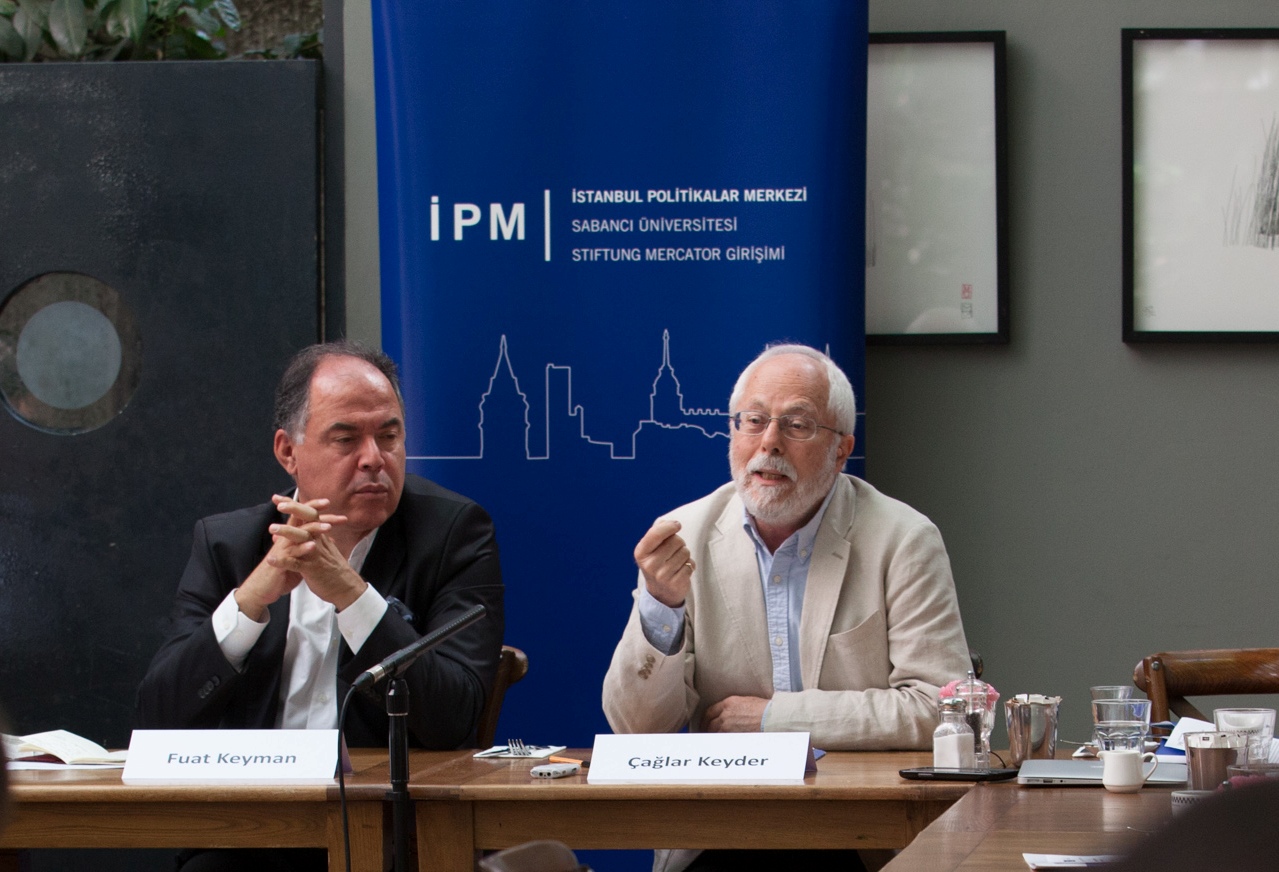26/07/2016
A panel themed “Neoliberal globalization and populist trends: Turkey in global context” by the Istanbul Policy Center (IPC), Sabancı University and Stiftung Mercator Initiative was held last week, with lecturers including Mercator-IPC Senior Researcher Çağlar Keyder and IPC Director Fuat Keyman.

A common reaction has already been formed against neoliberal globalization. Transnational economic streams have paced down since the 2008 crisis, while the number of social movements and political formations opposing the neoliberal ideology are on the rise. Among developed countries, the populist tendency that emerged during the US election campaign draws special attention. Candidates of both sides give their words to revert the dynamics caused by the post-1980 economy policies that impoverish especially the mid-class and workers by creating unemployment and uneven income distribution. They also promise not to support the post-1980 Atlantic-Pacific trade treaties and arrangements – the most recent endeavors related to liberalization efforts. Under electoral pressure, they have been creating platforms to bring Wall Street and the corporate lobbies in Washington to their knees. Whatever the results may be, the government will certainly be playing a more autonomous role in terms of state-market equilibrium in the upcoming period.
In most European states, these trends seem to be social movements at the first stage, then translate to the political arena. Scotland’s desire leave the over-liberal Britain and Britain’s withdrawal from the over-liberal EU Commission –Brexit– are a few examples from the West. In almost every country from Continental Europe, nationalist and statist movements are on the boil: Workers in France opposing to the new labor law, Le Pen movement; anti-immigrant and statist PEGIDA and AfD in Germany; fascistic nationalism in Austria, Poland and Hungary, and above all, antipathy for the EU management in Brussels and speculations about disintegration. States with no liberalism experience could relatively preserve their autonomy. We still witness the rise of authoritarian populist leaders and state control in various countries.
Lecturers of this event discussed how the neoliberal global transformation, including Turkey, will proceed, what impact will it have on the economic equilibrium and how it will shape the future of political tendencies.




